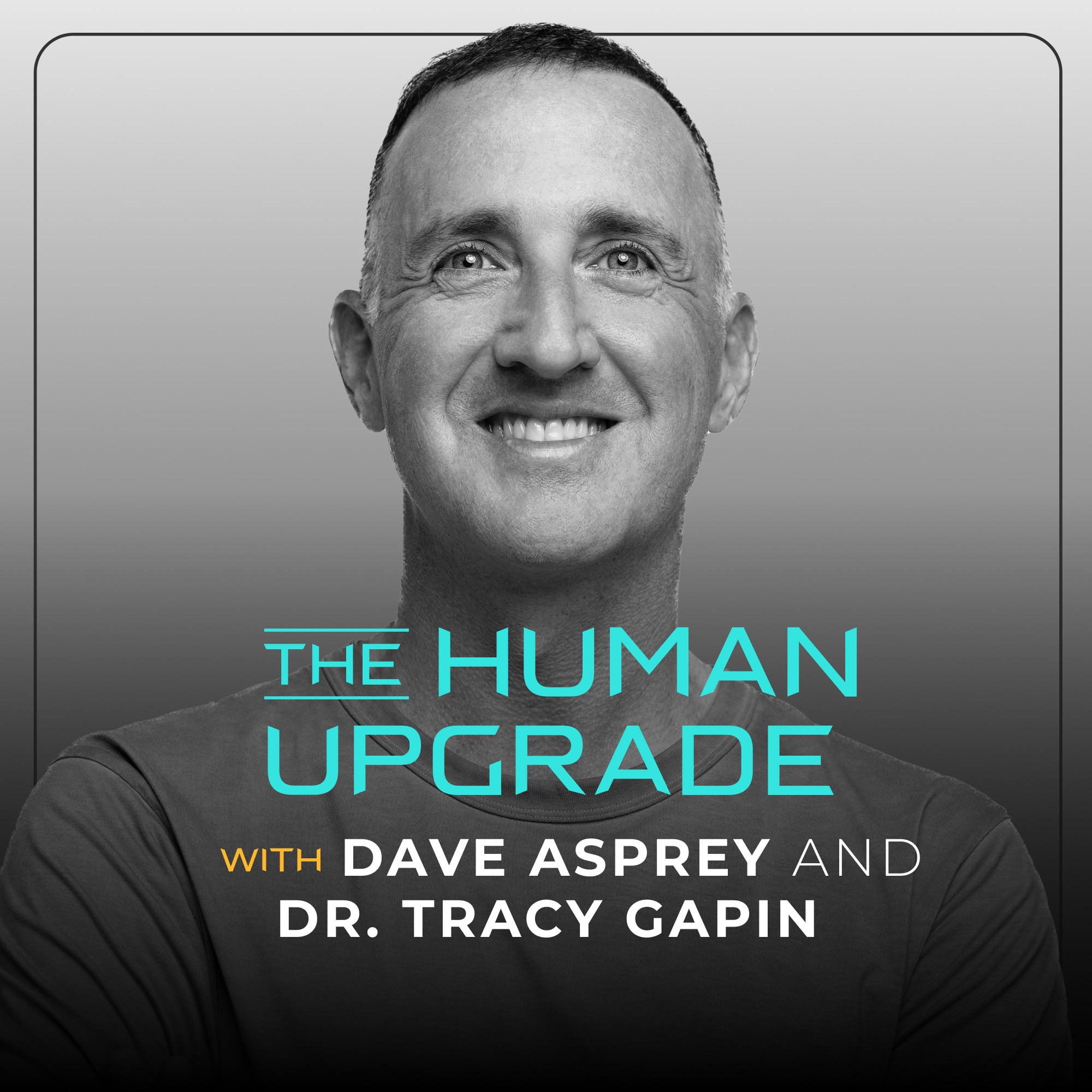
So we know that testosterone is the masculine hormone. We also know that exercise boosts testosterone.
But what’s the best method to use exercise to make you healthy, sexy, energetic, and manly?
The solution? High-intensity interval training.
Can HIIT make you manlier?
Yes. High-intensity interval training can make you manlier by boosting your testosterone levels.
So how does it work? 
Testosterone is the “masculine” hormone. It’s what gives you your male features like growth of body hair, increased muscles, and bone mass. Testosterone is what helps develop the male reproductive tissues during puberty, like the testes and prostate.
Testosterone also controls libido, energy, sleep, mood, metabolism, and protein synthesis. High testosterone leads to that high, teenage-like sex drive and that insane ready-for-anything energy. It helps you sleep better, feel better, and be happier, along with helping you to lose weight, maintain a healthy body fat mass, and grow your muscles.
Testosterone is what makes you super-man.
But what happens if your testosterone is low? Does that make you less manly?
No, you’re still a rock star guy. But, you might start to feel less manly if you have less testosterone. And no guy wants that.
You might have reduced sexual desires, low libido, or erectile dysfunction. You might be feeling depressed, anxious, or less motivated. It’s possible that you’ll even start to gain a softer belly with male breasts and reduced muscle mass.
Learn more about the symptoms and causes of low testosterone here: What is low testosterone?
You need testosterone for all your manly attributes.
And HIIT helps increase your testosterone.
How does HIIT work?
In my article Does Exercise Boost Testosterone?, we discussed the three-step workout to boost T:
- Compound exercises
- Fewer reps, higher weight
- Longer rest periods
Most experts lovingly refer to this type of workout as “high-intensity interval training.” It’s also sometimes referred to as high-intensity intermittent exercise (HIIE) or sprint interval training (SIT).
Let’s break it down.
“Training,” refers to working out. So, in order to see results—you actually need to get up and get yourself to the gym. (Or you can even get yourself to your living room.)
“Interval,” refers to the number 3 in the three-step workout. Interval workouts are when you workout as hard as you can for a specific period of time before resting your body. For example, you might lift weights for 15 seconds, rest for 30 seconds, and then lift for 15 seconds again. This creates intervals that alternate between aggressive movement and prolonged periods of rest.
“High intensity,” refers to numbers 1 and 2 in the three-step workout. During the intervals that you’re working out, you want to be doing the most intense movements as possible. This comes in two parts:
- You want to strain as much muscle tissue as you can at once. These are called “compound exercises,” which work multiple muscle groups in one movement.
- Additionally, you also want to lift a higher weight for fewer reps (as opposed to a lower weight for more reps). Lifting more weight strains your muscles more.
In essence, HIIT is an anaerobic exercise that alternates between bursts of intense compound movements and long recovery periods.
How does HIIT impact testosterone?

Up until this point, you’ve just believed me when I told you that HIIT increases testosterone. So thank you for your trust.
But now I’ll explain how it works and why that impacts your “manliness.”
Study after study shows that HIIT can increase testosterone. Some examples include:
- A recent study in Endocrine Connections found that HIIT increases muscle power and free testosterone in male athletes greater than cardio can.
- Research in the Journal of Strength and Conditioning found that HIIT increases GLUT4 (glucose transporter) and testosterone levels.
- One study in the Journal of Endocrinological Investigation reported that interval exercise created a greater turnover of free testosterone than steady-state endurance.
- A study of cyclers found that the high-intensity group reported a 97% increase in T levels as opposed to the steady-state group which had only 62% increase.
Where does this relationship of HIIT and testosterone come from?
HIIT boosts protein synthesis (aka it helps build muscle). It’s the number one way to burn fat while building muscle. And testosterone plays a critical role in muscle synthesis. So, while HIIT is building more muscle, your testosterone levels have to increase in tandem to help synthesis that muscle.
Building muscle requires testosterone. Your body has to produce more testosterone and amino acids to give you those strong muscles.
In essence, the more you strain and grow your muscles, the more testosterone your body generates.
The benefits of HIIT include:
- Increases testosterone
- Boosts the human growth hormone
- Increases nitric oxide
- Boosts muscle mass and density
- Enhances energy
- Normalizes blood sugar
- Increases insulin sensitivity
- Improves sleep quality
All of these HIIT benefits actually help further increase testosterone. For example, better sleep quality gives your body more time to reset and generate testosterone. Enhancing nitric oxide boosts blood flow throughout the body—especially to the penis—to help overcome erectile dysfunction.
There’s another important benefit of HIIT that has massive impacts on testosterone levels…
HIIT burns fat.
 A study at the University of South Wales found that those who participated in HIIT lost 3x the body fat as the non-HIIT group.
A study at the University of South Wales found that those who participated in HIIT lost 3x the body fat as the non-HIIT group.
HIIT is one of the best ways to quickly and effectively burn fat. When you do cardio or other endurance exercises, your body actually starts to tap into some of its muscle mass in order to get the energy it needs. This can make you start to lose muscle as opposed to fat. (That’s why you’ll sometimes see marathon runners who have a little bit of a gut, even though they’re able to run marathons with ease.)
When your body eats at its muscle, it actually starts to deplete its natural free testosterone sources.
But interval training causes your body not to tap into muscle energies. Instead, HIIT taps into your stored sugars. You get the strength and stamina you need from your fat reserves. So you’re burning fat as opposed to using muscle.
Plus, HIIT actually puts your body in fat-burning mode for up to 36 hours after your workout.
Overall, HIIT actually burns more fat than any other form of exercise.
And burning fat plays an important role in testosterone. If you have more fat, your body will start to create more estrogen. Estrogen is the antithesis of testosterone.
More fat = lower testosterone
Less fat = higher testosterone
So HIIT can help you burn fat so your body can focus on testosterone production.
Fun fact: During a HIIT workout, put your hand on your stomach. If it feels cold, you’re burning belly fat! That’s your body trying to regulate its temperature as it uses up energy.
Why is HIIT better than cardio?
Cardio is good for your heart—but it also has a lot of downsides. Steady cardio actually overworks your body, putting your body into a state of stress. This causes an increase in cortisol levels, which steals away from testosterone production. Cardio can also decrease the immune system, cause oxidative damage, create chronic inflammation, and decrease your metabolism.
That’s not to say cardio is the devil. It’s still a great way to help clear out your arteries and protect against serious disease like hypertension and cardiovascular disease.
However, you want to avoid chronic, intense cardio. Instead, cycle your HIIT workouts with light to moderate cardio to see the benefits of both. HIIT will raise your testosterone and cardio will keep your body moving and strong.
Your HIIT plan
Below are some basics you should know about how to start creating a HIIT plan that will work for you, especially with regards to the length of your workout, the types of exercises, and the frequency of training.
Length
One of my favorite parts of HIIT is that you don’t have to do super long workouts to see the effects. One HIIT session should last no more than 30 minutes. This shortened length is because the intensity of the intervals actually burns more calories and builds more muscle mass than longer, less-moderate periods.
Plus, if you do HIIT for too long, you can actually over-stress your body, which can actually increase the production of cortisol. Too much cortisol actually “steals” away from the production of testosterone. You want to be careful not to stress your body while you workout.

Frequency
You don’t want to do HIIT workouts every day. Like the length of your workout, too frequent HIIT sessions can stress out your body and raise cortisol levels.
Your body needs recovery periods. It’s actually during this recovery that you start to build muscle.
Plus, HIIT puts your body in fat-burning mode for 36 hours after the workout. This means you don’t actually need to do it every day in order to keep your body burning fat—even while you’re resting.
You should perform HIIT only 3-4 times a week. On your rest days, do lighter cardio (like swimming or jogging) to burn calories and keep your body active without overdoing it.
HIIT sounds easy, right? You only have to work out 30 minutes every other day! Score! But it’s not easy. In fact, most men say that even a 15-minute HIIT workout is harder than any other form of working out that they do. So don’t take it lightly! You may even want to get a coach or trainer to help get you through it.
Exercises
HIIT is a type of workout method—not the workouts itself. So you can actually apply this type of training to any form of exercise you want. If you like to run, you’ll sprint for 20 seconds and then rest for 30 seconds. The same is true of swimming, biking, kickboxing, martial arts, or any other type of training that you like to do. You can even turn yoga into a HIIT workout since yoga has some seriously awesome sexual health benefits!
I usually recommend pairing HIIT with resistance training, for example, an exercise with resistance bands. You want to focus on compound exercises that work a lot of muscles at once. With HIIT, you want to be working as much muscle tissue at one time as possible in order to see the greatest effect.
I like doing half of my HIIT as cardio and the other half as resistance training. Below are some sample exercises.
HIIT cardio exercises:
- Battle ropes (check out this fun HIIT battle ropes exercise here)
- Boxing
- Burpees
- Cycling
- Jump rope
- Mountain climbers
- Rowing
- Sprints
- Stair climbing
HIIT resistance exercises:
- Bicycle crunches
- Calf raises
- Dips
- Dumbbell punches
- Dumbbell squats
- Kettlebell swings
- Lunges
- Oblique crunches
- Push-ups
- Pull-ups
- Resistance band curls
- Sit-ups
- Sled training
- Squats
Check out these awesome 10 HIIT workouts from Men’s Journal.
Sample HIIT plan
I’m going to give you some sample plans that you can mix and match to start blasting fat and boosting T this week! How does that sound?
Let’s go!

Sprinting explosion
Equipment: You can do this on a track, on a treadmill, or in your backyard.
Time: 10 minutes
- 1 minute warm-up (slow walking/jogging)
- 30 seconds sprinting at almost full-capacity (like a 7/10 power)
- 1 minute jogging
- 30 seconds sprinting at full power (10/10 power)
- 1 minute slow jogging
- 30 seconds sprinting at almost full capacity (6/10 power)
- 1 minute jogging
- 30 seconds sprinting at full power (10/10 power)
- 1 min 30 seconds slow jogging
- 30 minutes sprinting at full power (9/10 power)
- 1 min moderate jogging
- 1 minute cool-down (slow walking/jogging)
Ab blast
Equipment: Towel/mat
Time: 10 minutes
- 1 minute warm-up jumping jacks
- 30 seconds plank
- 1 minute rest
- 30 seconds push-ups
- 1 minute slow crunches
- 30 seconds side shuffle
- 1 minute rest
- 30 seconds oblique crunch
- 1 minute side stretches
- 30 seconds plank
- 1 minute rest
- 30 seconds oblique crunch
- 1 minute cool-down walking
Lower body boost
Equipment: jump rope
Time:
- 1 minute warm-up jumping rope
- 30 seconds dumbbell squat
- 1 minute rest
- 30 seconds calf raises
- 1 minute stretching
- 30 second jump squat
- 1 minute rest
- 30 second switch lunge
- 1 minute stretching
- 30 second stability ball squat
- 1 minute rest
- 30 second burpees
- 1 minute cool-down walking
Notice here that we’re looking at time as opposed to reps. However, if you’re using HIIT with your typical lifting routine, you’ll want to focus on using heavier weights with fewer reps. For example, you might do 6 curls at 80 pounds as opposed to 12 curls at 50 pounds.
Keep it intense—but don’t forget to rest!

Conclusion
HIIT is a time-efficient way to boost your testosterone and build your muscles. This high intensity isn’t easy at first—but it will make you feel better in no time. HIIT the strongest way to boost your testosterone, increase your energy, and renew your manliness.
I gave you a few HIIT workouts to get you started, but it’s not specific to your individual sexual and overall health needs.
If you want to truly take control of your workouts and FINALLY get control over your health…
If you want to have a clear-cut, doctor-recommended plan to get your T high and your muscles bulky…
Then its time for a MALE 90X Consult.






